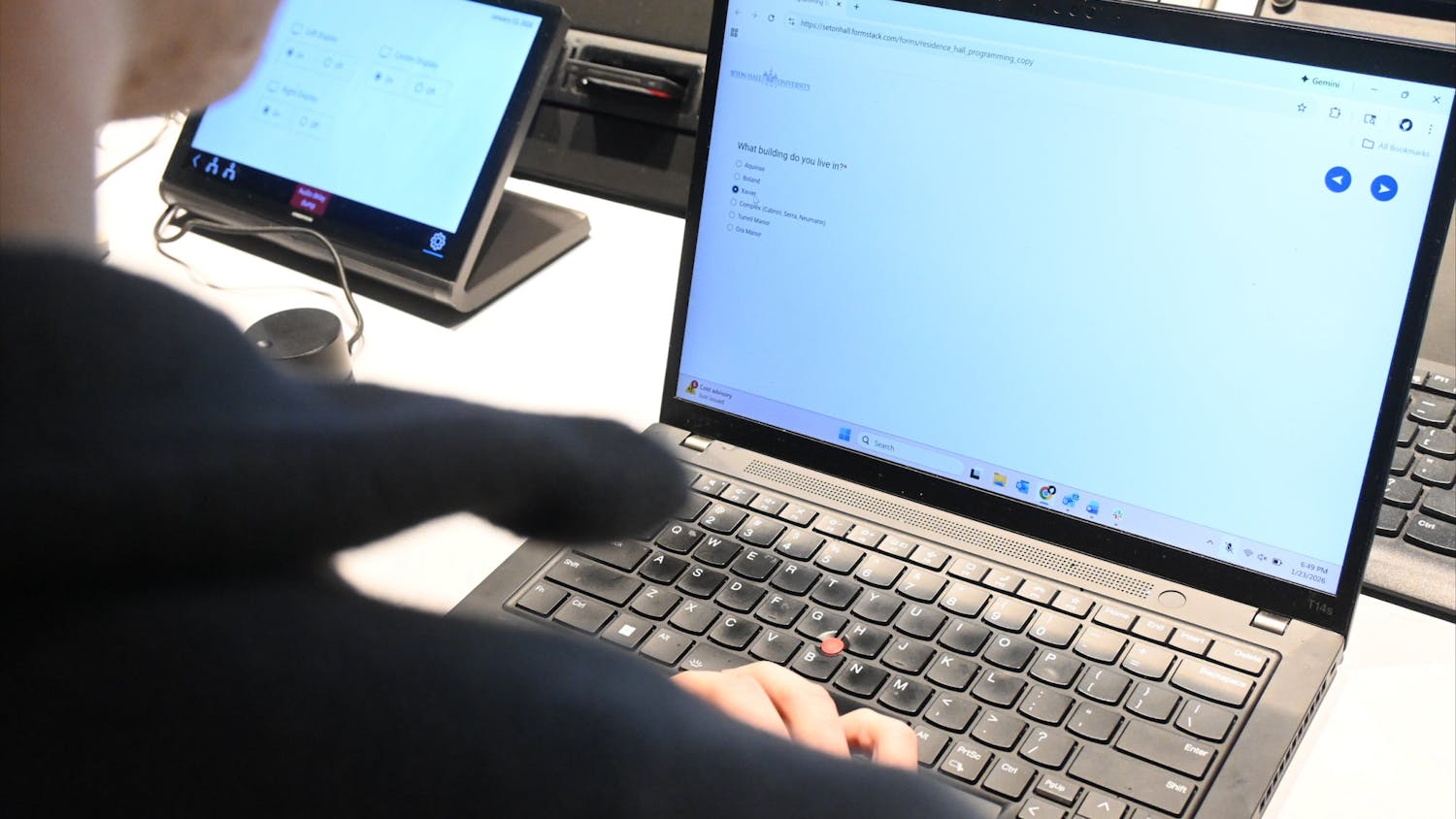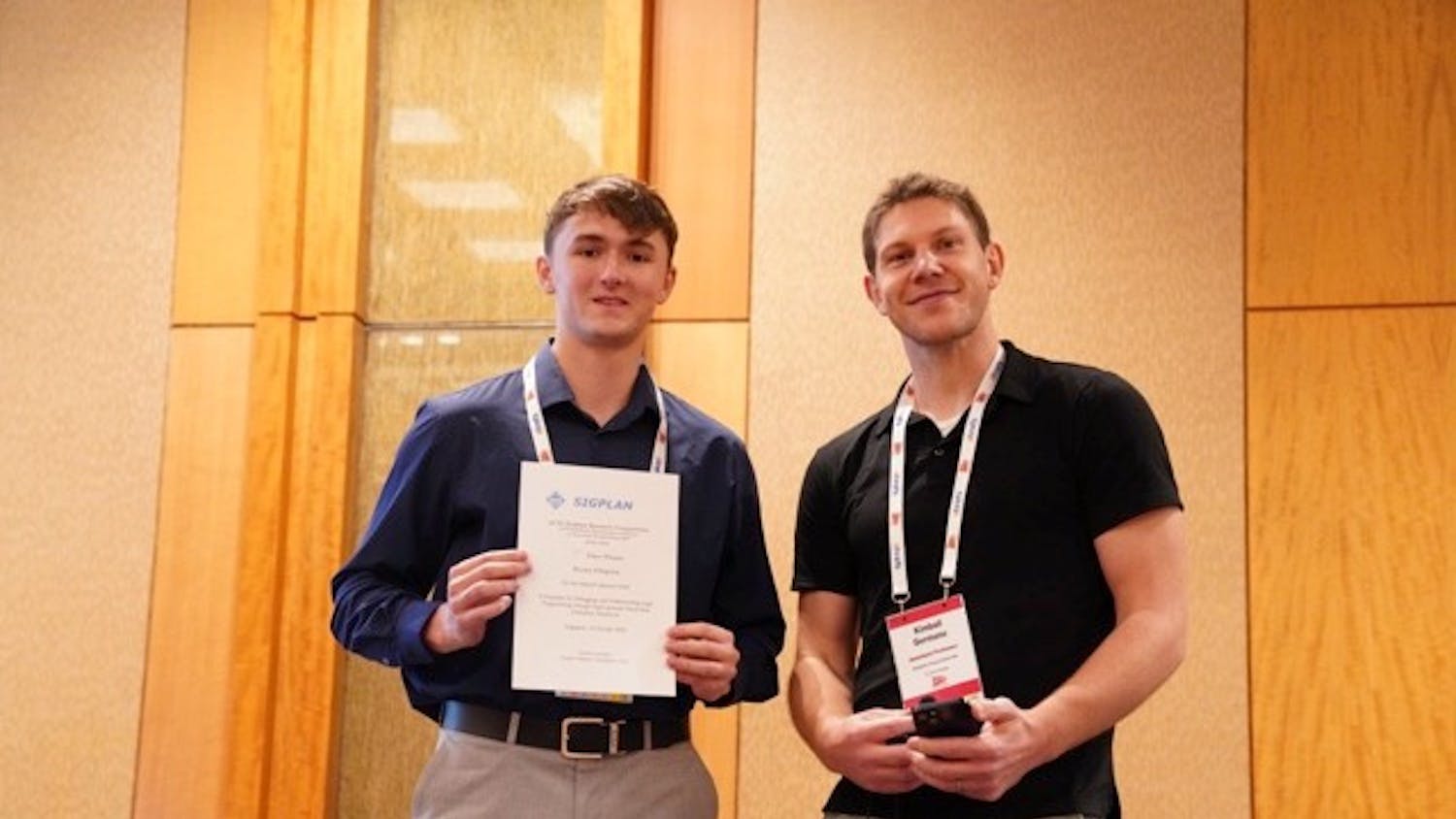[caption id="" align="alignnone" width="346"] Pixbay.com[/caption]
A cell phone study comparing teen sleep, grades, and the effects of looking at smartphone screens was recently conducted and published by researchers at Seton Hall’s School of Health and Medical Sciences and the JFK Neuroscience Institute.
Dr. Peter Polos, the author, and Dr. Vincent DeBari, co-author, wrote “The Impact of Sleep Time-Related Information and Communication Technology (STRICT) on sleep patterns and daytime functioning in American adolescents,” examining a subject that Dr. DeBari said he felt had not been well explored. They looked at 3,139 students from Edison High School in Edison, N.J.
Dr. Polos is a clinical associate professor for the Department of Neuroscience at the SHU School of Health and Medical Sciences.
Both Dr. DeBari and Dr. Polos worked in collaboration with the Sleep Medicine Clinical Fellowship Program (part of the Neuroscience Institute at JFK Medical Center) which is sponsored by SHU’s School of Health and Medical Sciences.
“The Sleep Medicine group has a great deal of expertise in issues such as this and is in a unique position to delve into the effect that electronic communication use, at night, affects daytime sleepiness.” Dr. Debari said.
The Setonian asked 12 students at random on campus if they use their phone or laptop right before going to bed. Out of 12 undergraduate students on campus, six female and six males, ten answered ‘yes’ yet only five of those students said they had a hard time sleeping at night and often felt tired during the day.
Marcos Velasco, freshman civil engineering major, is one of the people who is on his phone late at night and has a hard time staying awake during the day. “I find myself falling asleep in every other class, but I don’t have a hard time sleeping at night or focusing on my homework,” Velasco said.
Student Ashley O’Connell, junior accounting major, shares similar habits and effects as Velasco. “Before I go to bed, I usually shut down my computer but I sit on my phone for a good amount of time before I got to sleep,” O’Connell said. “In terms of using my phone, if I am waiting for someone to reply to me then I will have a hard time sleeping, but otherwise, I don’t have a hard time sleeping at night.”
Curtiss Korn, senior marketing and management major, finds that no matter what time he goes to bed and when he sleeps the day away, he usually wakes up feeling worse than if he wakes up early.
“I’m on my phone with emails and texting late at night, because if someone texts me I feel eager to reply. As long as the other person is answering, I will try my best to text back,” Korn said.
Medical Daily, an online journal that explores the health effects of everyday objects, compared multiple studies to create their own article, “Five Reasons Why Cell Phones are Bad for Your Health” in 2013. Author Lizette Borreli uses her article as a way to warn the public of the negative effects from using their smartphones. The five reasons stated in the article are that cell phones negatively affect emotions and increase stress levels, risk of illness in the user’s immune system, risk of chronic pain, and risk of eye and vision problems.
“Researchers found high mobile phone use was associated with stress and sleep disturbances for women, whereas high mobile phone use was associated with sleep disturbances and symptoms of depression in men,” Borreli wrote. Not only do they cause people to lose sleep, but the constant notifications and quick and easy access to the rest of the world induces stress.
Alexandra Gale can be reached at alexandra.gale@student.shu.edu
Pixbay.com[/caption]
A cell phone study comparing teen sleep, grades, and the effects of looking at smartphone screens was recently conducted and published by researchers at Seton Hall’s School of Health and Medical Sciences and the JFK Neuroscience Institute.
Dr. Peter Polos, the author, and Dr. Vincent DeBari, co-author, wrote “The Impact of Sleep Time-Related Information and Communication Technology (STRICT) on sleep patterns and daytime functioning in American adolescents,” examining a subject that Dr. DeBari said he felt had not been well explored. They looked at 3,139 students from Edison High School in Edison, N.J.
Dr. Polos is a clinical associate professor for the Department of Neuroscience at the SHU School of Health and Medical Sciences.
Both Dr. DeBari and Dr. Polos worked in collaboration with the Sleep Medicine Clinical Fellowship Program (part of the Neuroscience Institute at JFK Medical Center) which is sponsored by SHU’s School of Health and Medical Sciences.
“The Sleep Medicine group has a great deal of expertise in issues such as this and is in a unique position to delve into the effect that electronic communication use, at night, affects daytime sleepiness.” Dr. Debari said.
The Setonian asked 12 students at random on campus if they use their phone or laptop right before going to bed. Out of 12 undergraduate students on campus, six female and six males, ten answered ‘yes’ yet only five of those students said they had a hard time sleeping at night and often felt tired during the day.
Marcos Velasco, freshman civil engineering major, is one of the people who is on his phone late at night and has a hard time staying awake during the day. “I find myself falling asleep in every other class, but I don’t have a hard time sleeping at night or focusing on my homework,” Velasco said.
Student Ashley O’Connell, junior accounting major, shares similar habits and effects as Velasco. “Before I go to bed, I usually shut down my computer but I sit on my phone for a good amount of time before I got to sleep,” O’Connell said. “In terms of using my phone, if I am waiting for someone to reply to me then I will have a hard time sleeping, but otherwise, I don’t have a hard time sleeping at night.”
Curtiss Korn, senior marketing and management major, finds that no matter what time he goes to bed and when he sleeps the day away, he usually wakes up feeling worse than if he wakes up early.
“I’m on my phone with emails and texting late at night, because if someone texts me I feel eager to reply. As long as the other person is answering, I will try my best to text back,” Korn said.
Medical Daily, an online journal that explores the health effects of everyday objects, compared multiple studies to create their own article, “Five Reasons Why Cell Phones are Bad for Your Health” in 2013. Author Lizette Borreli uses her article as a way to warn the public of the negative effects from using their smartphones. The five reasons stated in the article are that cell phones negatively affect emotions and increase stress levels, risk of illness in the user’s immune system, risk of chronic pain, and risk of eye and vision problems.
“Researchers found high mobile phone use was associated with stress and sleep disturbances for women, whereas high mobile phone use was associated with sleep disturbances and symptoms of depression in men,” Borreli wrote. Not only do they cause people to lose sleep, but the constant notifications and quick and easy access to the rest of the world induces stress.
Alexandra Gale can be reached at alexandra.gale@student.shu.edu





